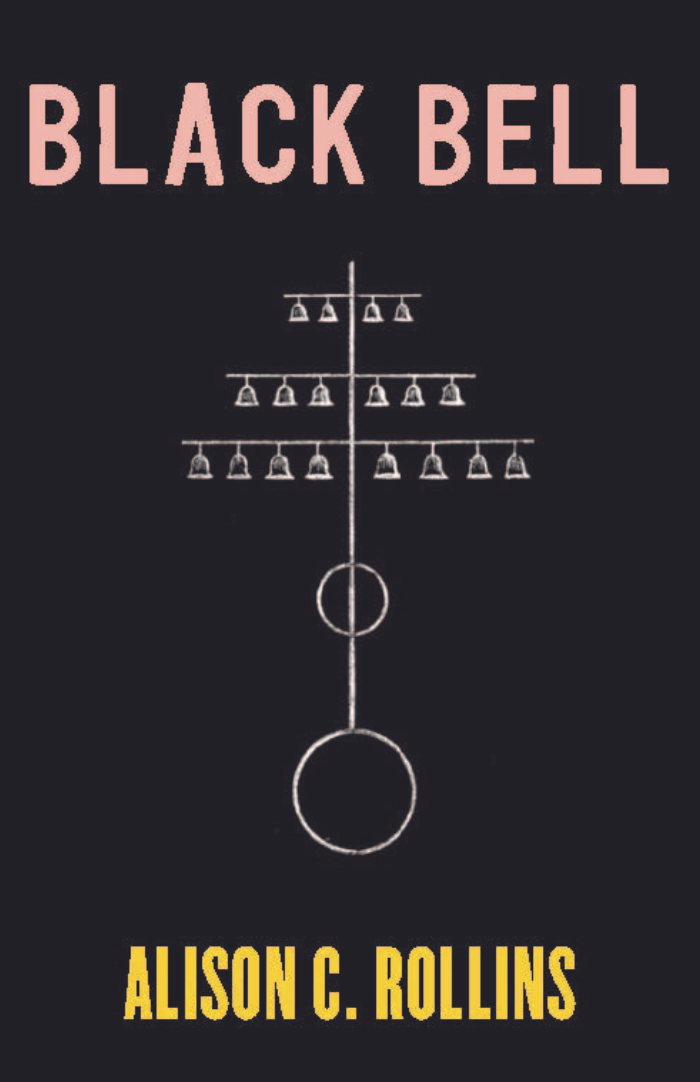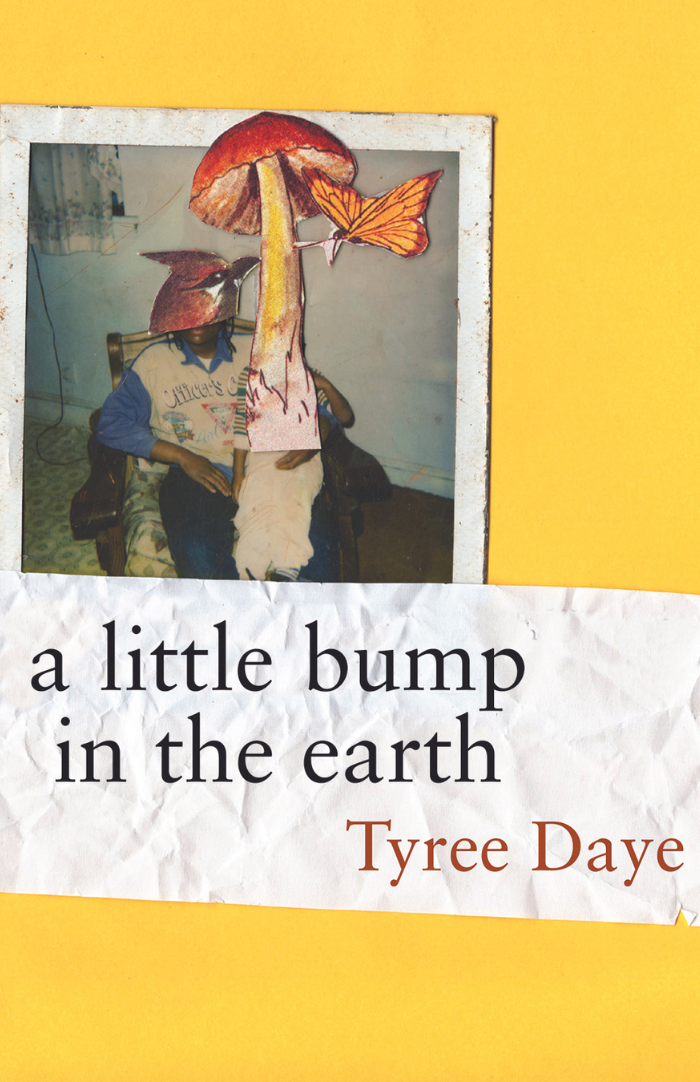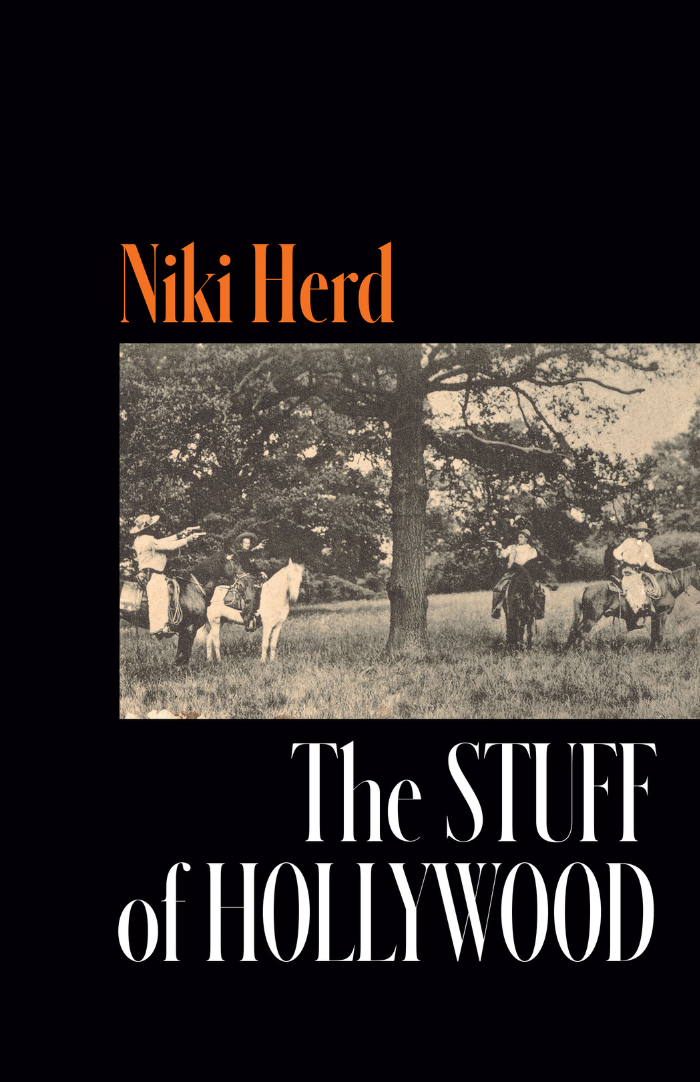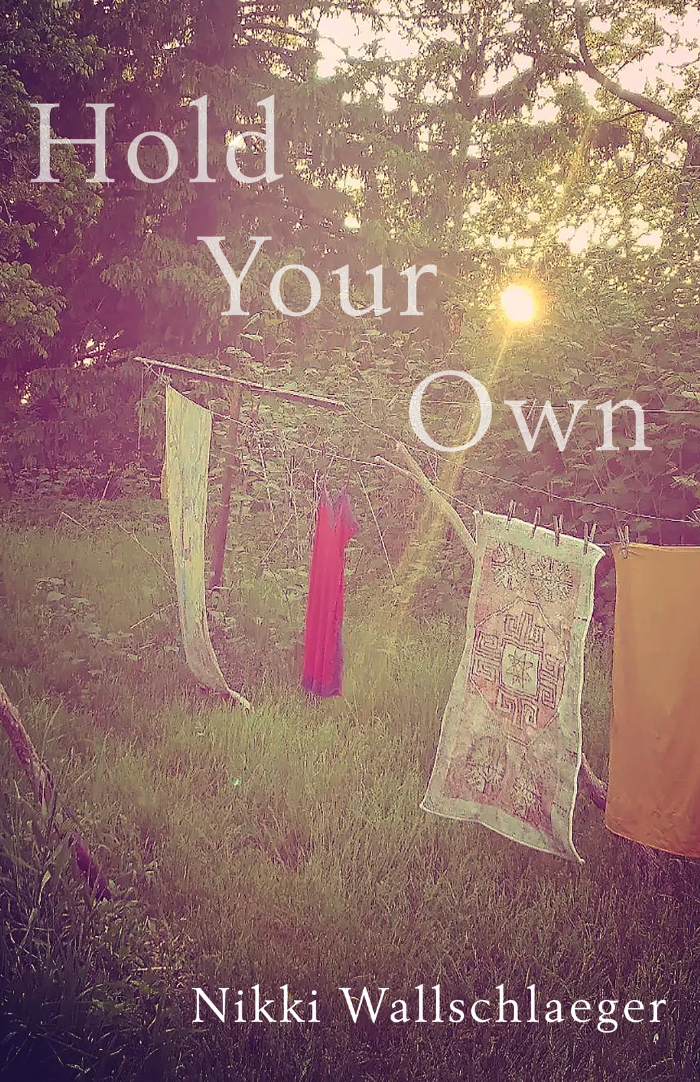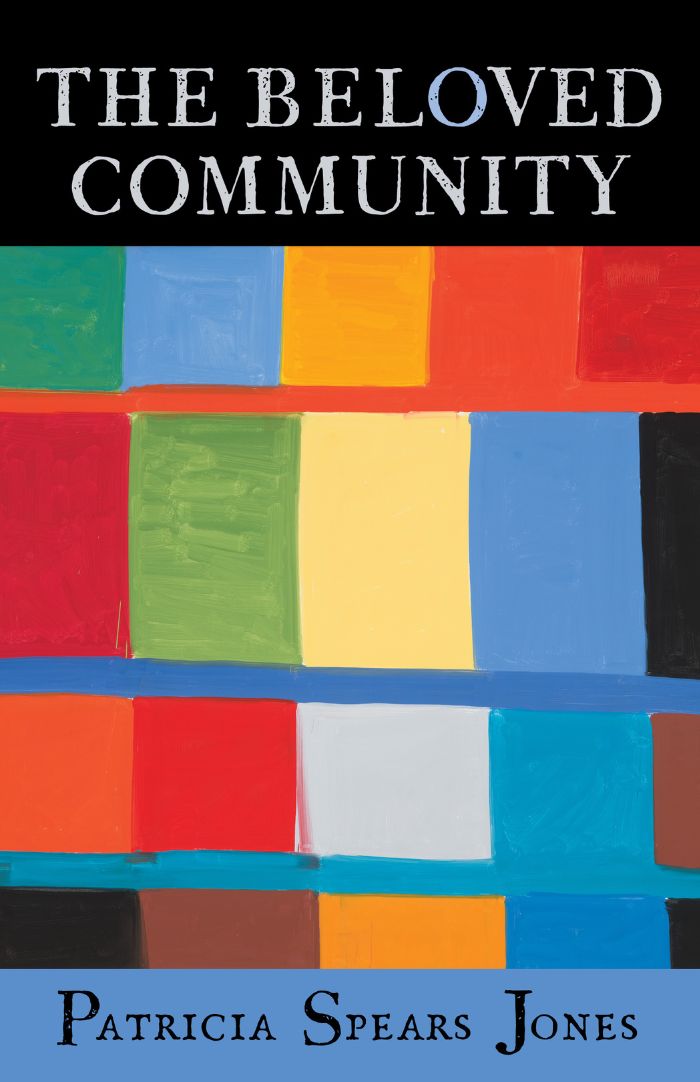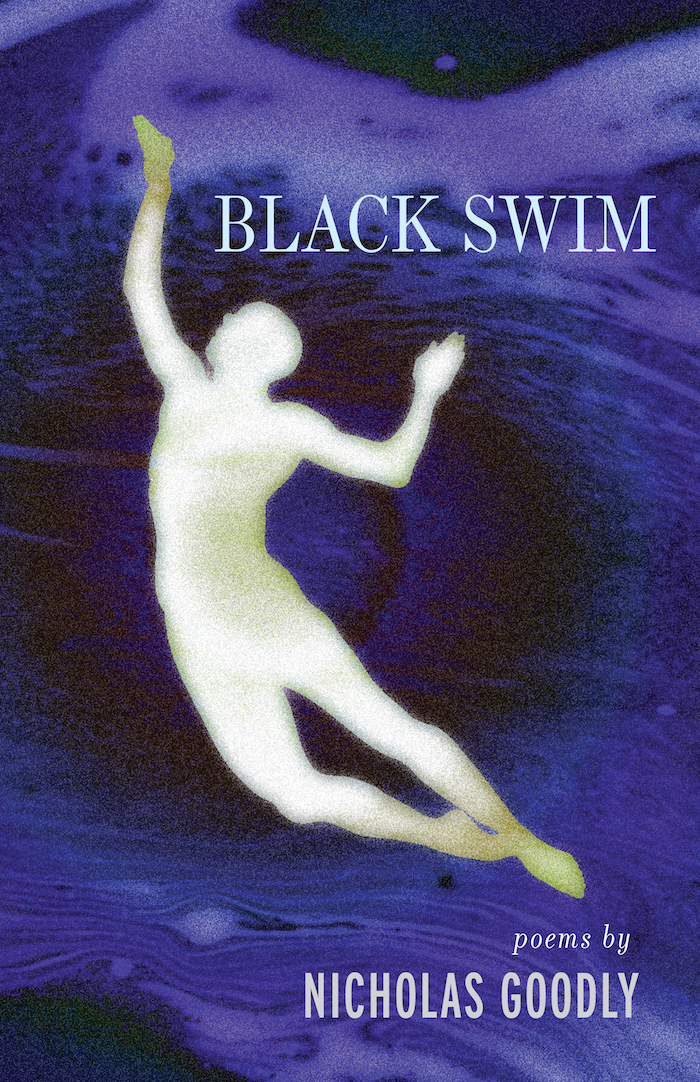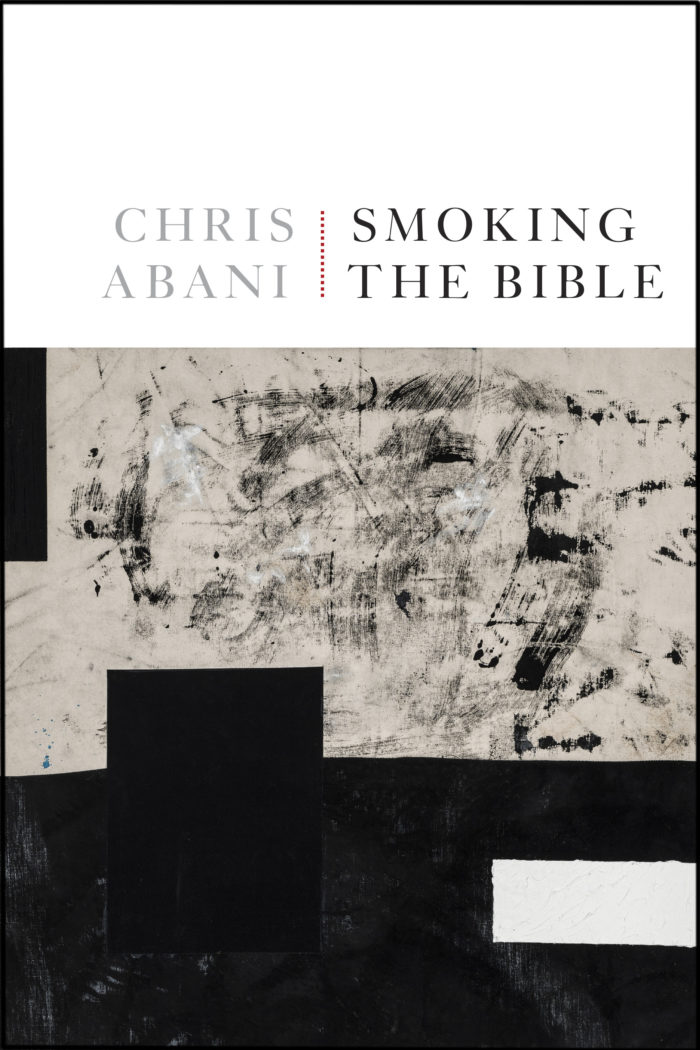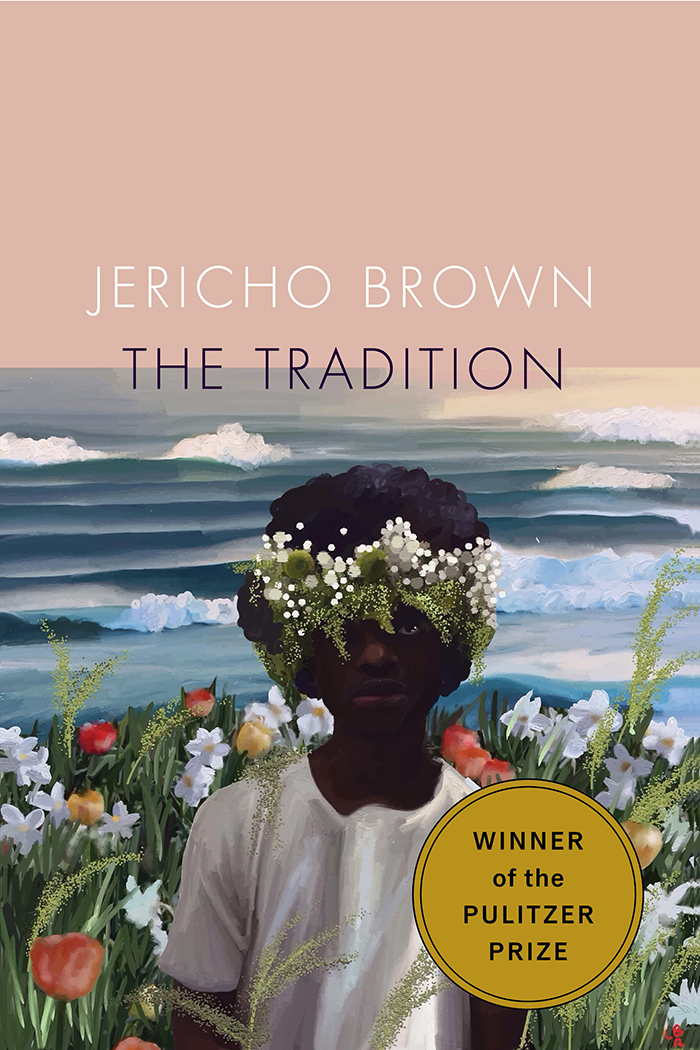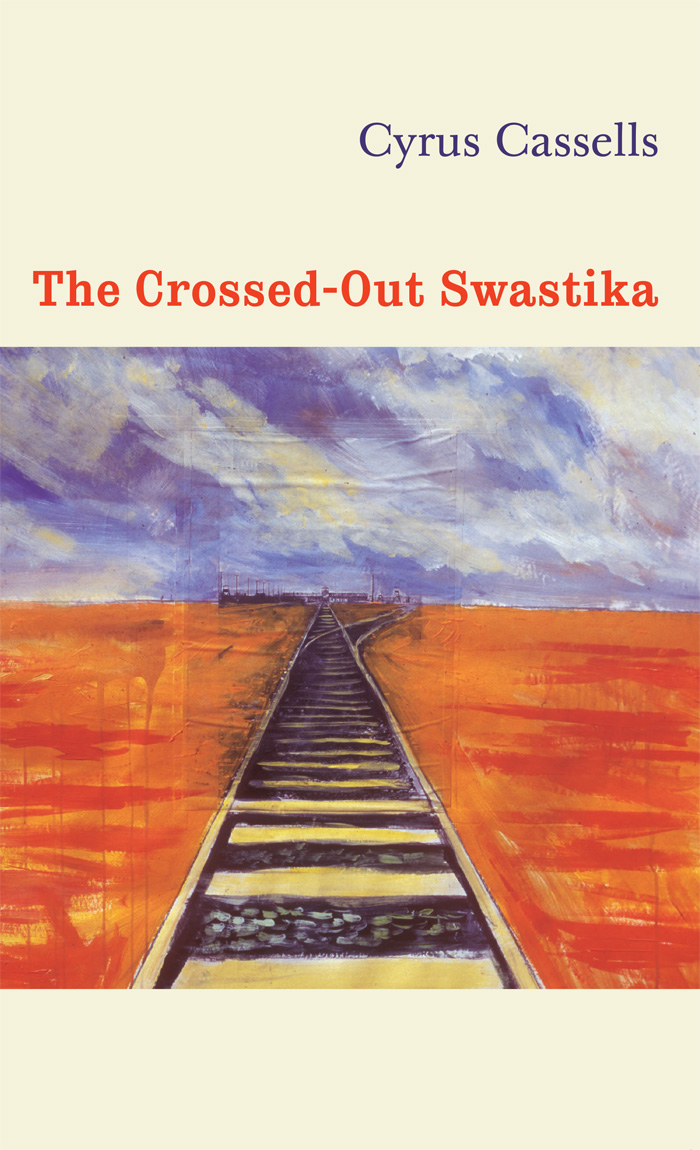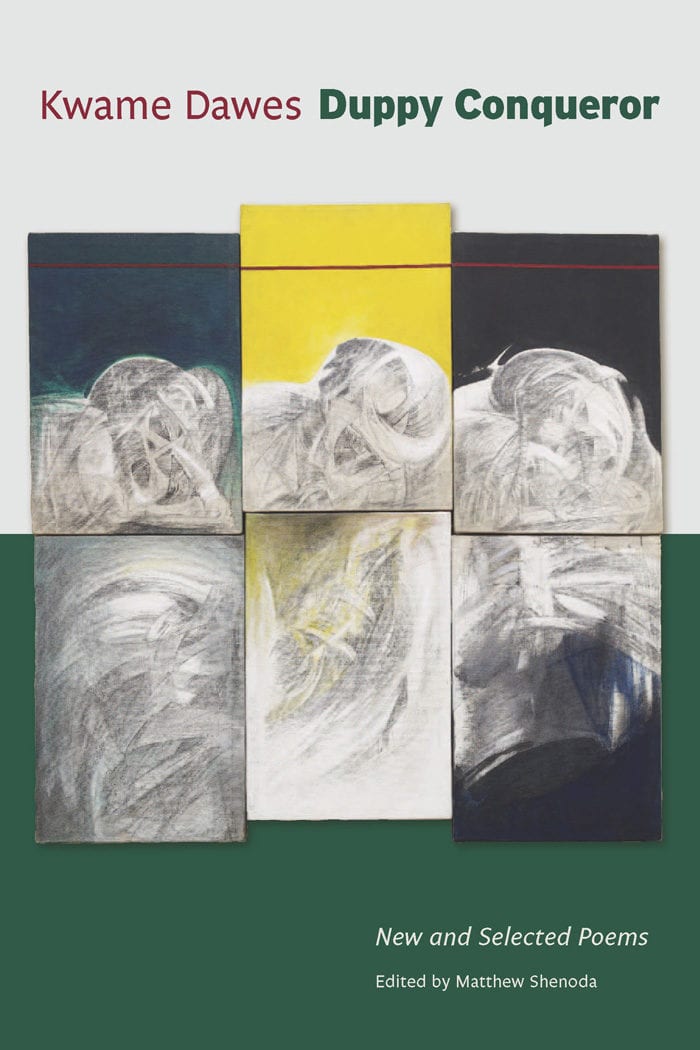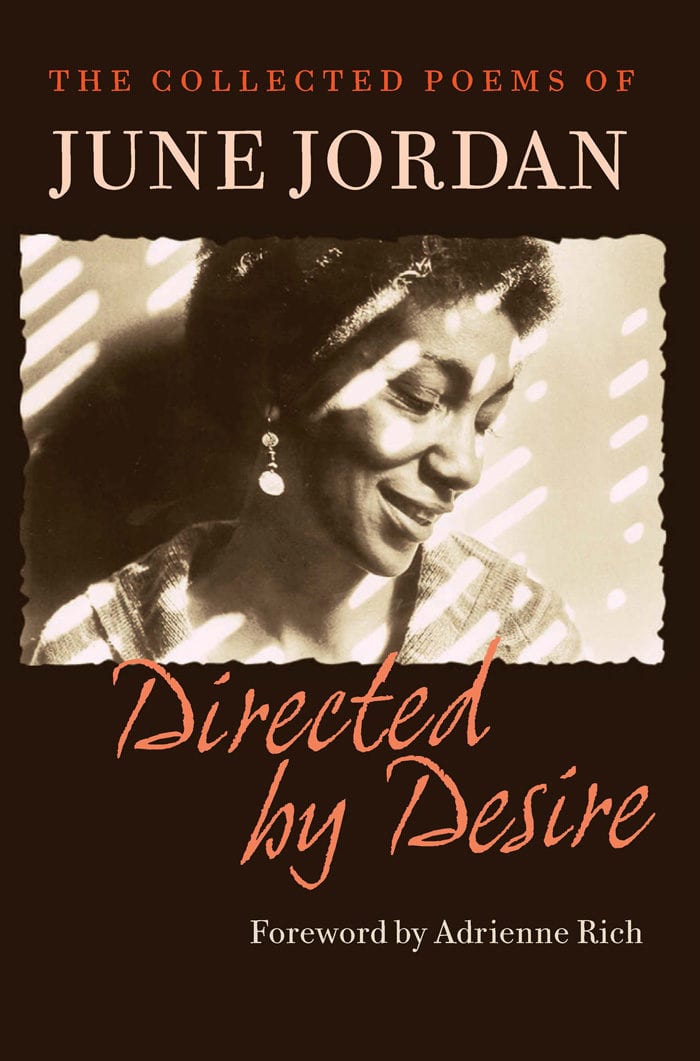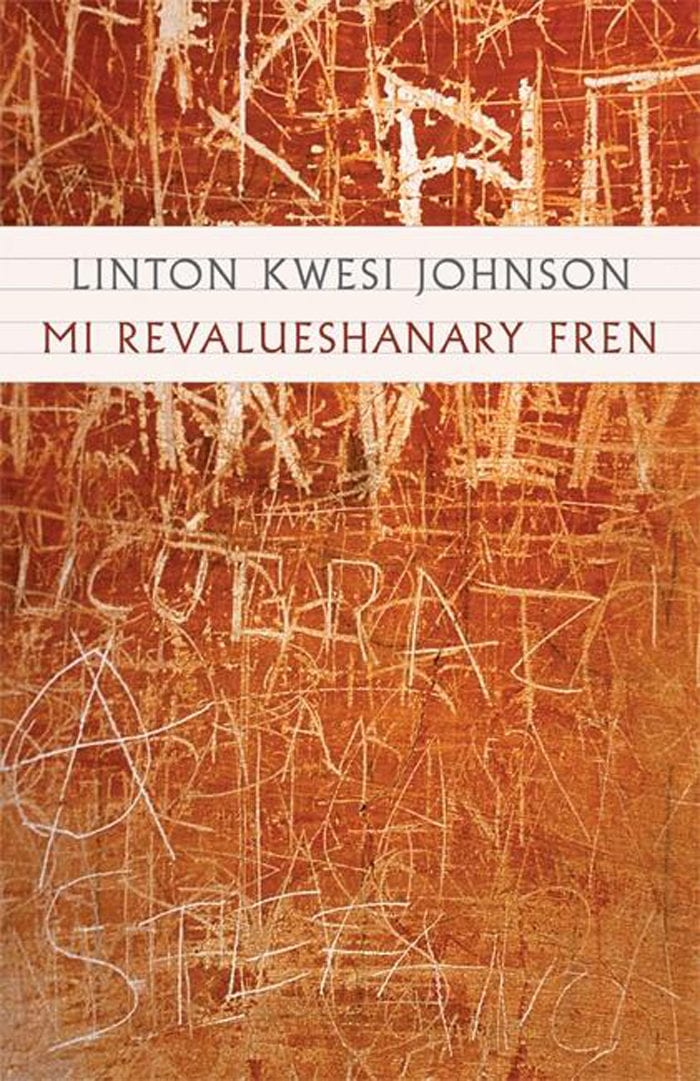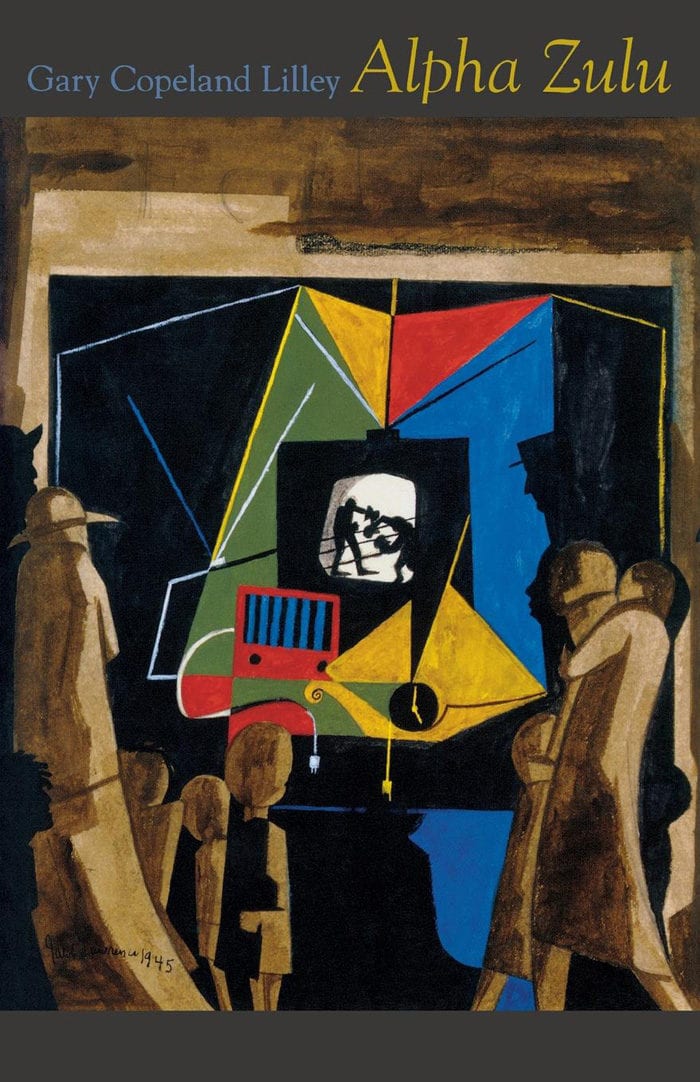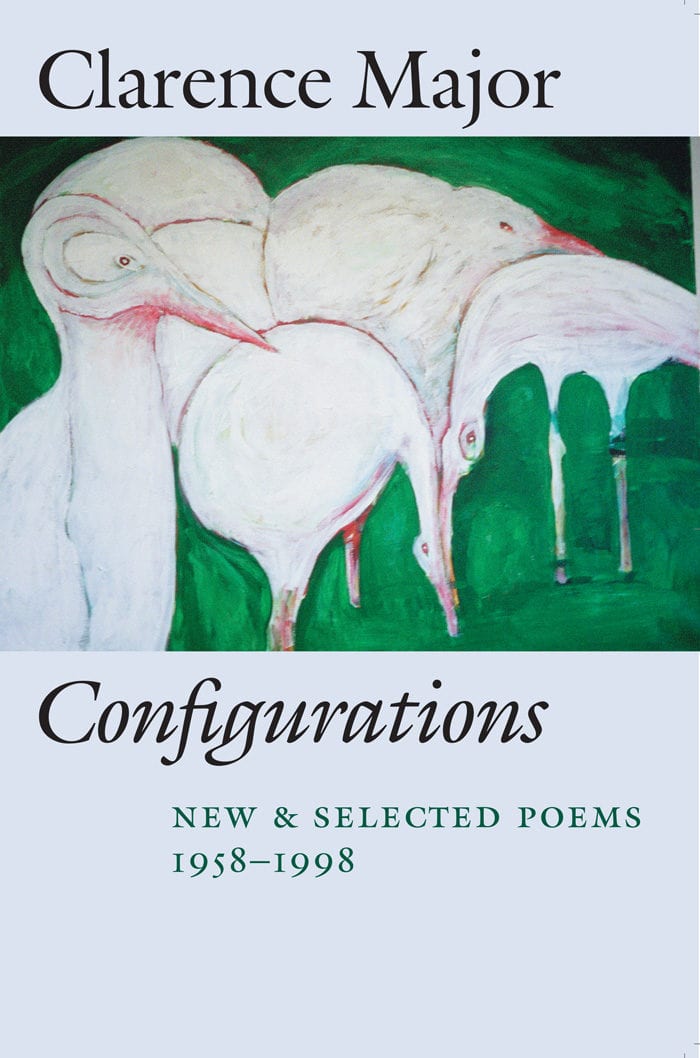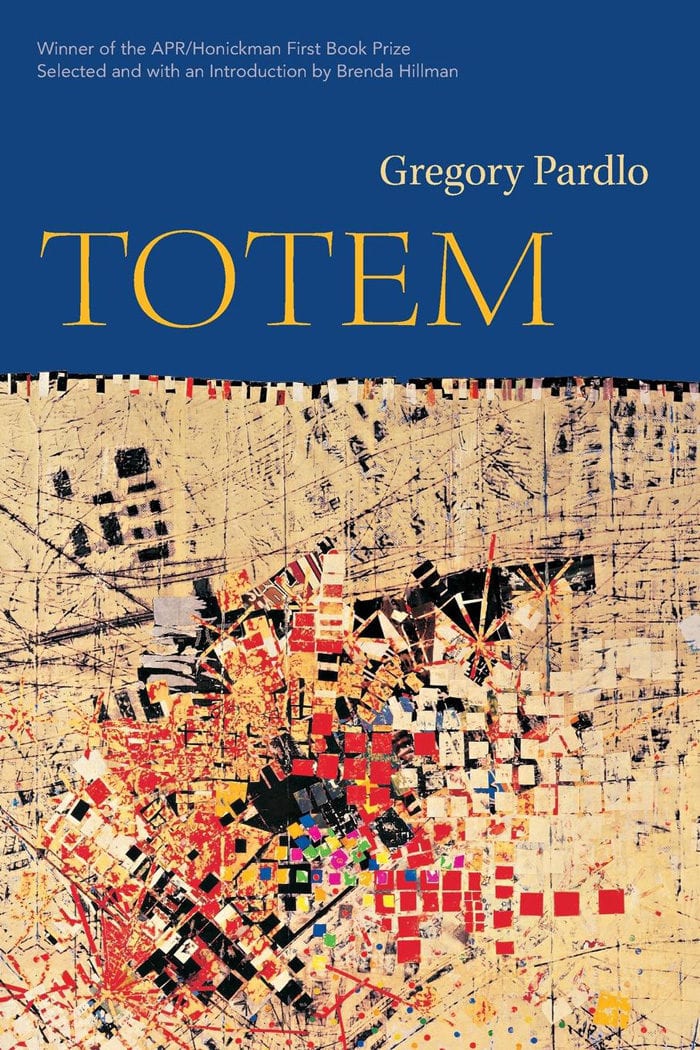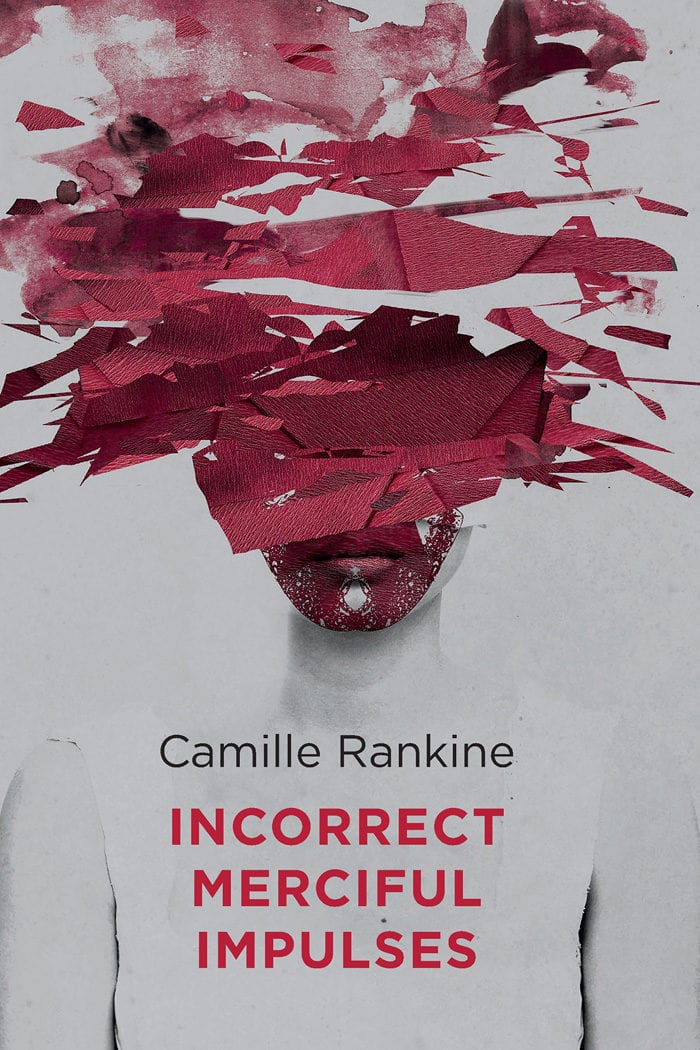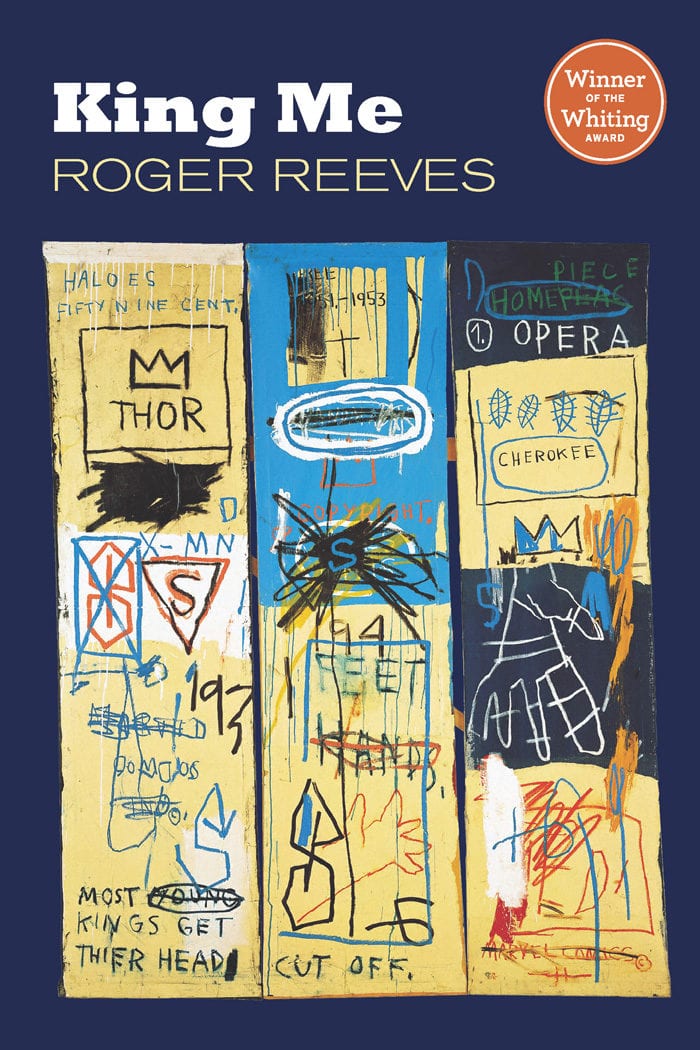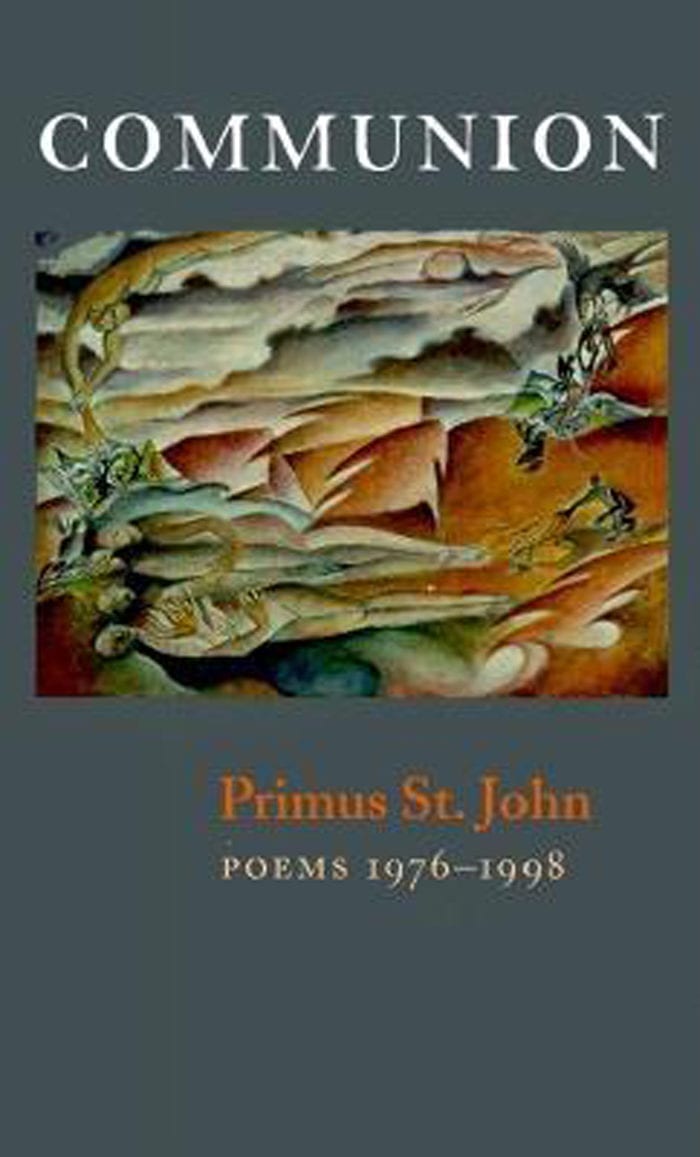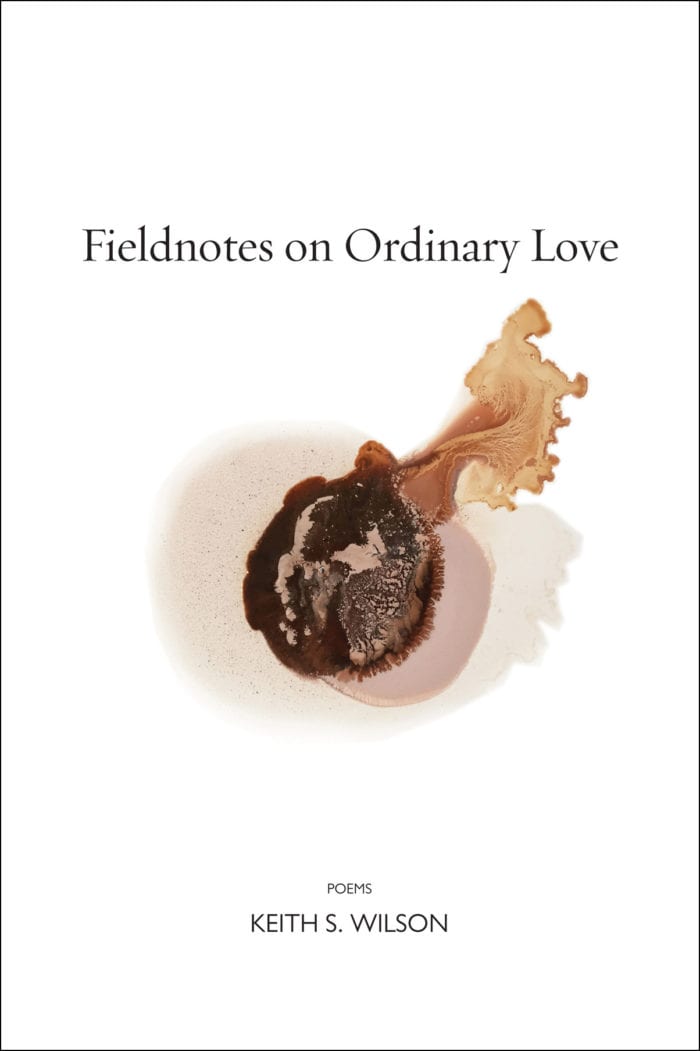Inspired by the nineteenth-century image of an enslaved woman wearing iron horns and bells, Alison C. Rollins’s Black Bell explores and catalogues both individual experience and collective memory. As Rollins sets out to resuscitate and embody the archive, we watch a chorus of historical figures like Eliza Harris, Henry “Box” Brown, and Lear Green appear; we listen in as Phillis Wheatley takes a Turing test; and we venture through the Inferno as it’s remixed with Enter the Wu-Tang (36 Chambers). Integrating performance art practices, metalwork, and sonics, Black Bell becomes a multimedia meditation on freedom seeking, furthering the possibilities of the canvas of the page as well as the poet’s body.
Tyree Daye’s a little bump in the earth is an act of invention and remembrance. Through sprawling poems, the town of Youngsville, North Carolina, where Daye’s family has lived for the last 200 years, is reclaimed as the “Ritual House.” Here, “every cousin aunt uncle ghost” is welcome. Daye invokes real and imagined people, the ancestral dead, land, snakes, and chickens, to create a black town on a hill. a little bump in the earth explores what it means to love someone, someplace, even as it changes, dies right in front of your eyes. Poem by poem, Daye is honoring the people of Youngsville and “bringing back the dead.”
The Stuff of Hollywood is a meditation on the pervasiveness of violence in America. In this book-length poem, Niki Herd relies on various modes—images, prose, and lyric and documentary poems—to reflect upon the quotidian nature of gun culture, police killings, and political unrest. From a busy Waffle House, to a movie theater in Aurora, Colorado, to an Uber ride down a Chicago street, readers are placed in various “film” locations and watch as America becomes a character in its own absurd movie.
Danusha Laméris’s third book, Blade by Blade, is a book of hungers: Hunger for the bright glare of poppies, for the hidden name of the beloved, for the cracked continental edge, for all we keep in “the heart’s farthest chambers.” Seeking a way back to joy following the deaths of her son and brother, the poet finds wonder in the furred legs of a caterpillar, in egrets, elephants, and elk, solace in the seagull’s speckled egg. Here we taste a longing to kiss in the dark corner of the gym, to leap into a volcano’s molten fire, to be unraveled, undone thread by thread, made one with all things. Microscopic and tidal, earthquake and fire-prone, Blade by Blade thrives in the underbrush of human emotion. These poems are luminous missives tossed on the wind asking us to re-enter the world we’ve forsaken, to set foot, as if for the first time, on the green earth and begin again.
Hold Your Own is a steadfast search for peace, self-acceptance, and pleasure in a world that makes those basic rights an everyday challenge for Black women. Through her signature blend of sharp social critiques and tender lyric supplications, Nikki Wallschlaeger plumbs the depths of emotional experience with fearless agency and exciting poetic experimentation. She brings the public into the personal and vice versa, intimately revealing—like a live wire into the soul—a singular entity, a person, profoundly impacted by family, community, nation, and world.
Diannely Antigua’s Good Monster grapples with the body as a site of chronic pain and trauma. Poignant and guttural, the collection “voyage[s] the land / between crisis and hope,” chronicling Antigua’s reckoning with shame and her fallout with faith. As poems cage and cradle devastating truths—a stepfather’s abusive touch, a mother’s “soft harm”—the speaker’s anxiety, depression, and boundless need become monstrous shadows. At the crux of despair, Antigua locates a resilient desire to find a love that will remain, to feel pleasure in an inhospitable body and, above all, to keep on living.
In her fifth poetry collection, The Beloved Community, Jackson Poetry Prize–winner Patricia Spears Jones interrogates the necessity and fragility of human bonds: sensual, familial, societal. From lyric to elegy, far-reaching poems use wordplay and metaphor to create richly textured landscapes in search of community. As we traverse delis, laundromats, and the Brooklyn block where morning glories grow “leaves plump as Italian cookies,” poems about poverty, art, and community become poems about location—always the city is alive and breathing. Later, the collection widens its view, leaving Brooklyn to visit the consequences of violence across America. From the Atlanta Child Murders to the murder of Nia Wilson, The Beloved Community is fearless in its rage and hope as it explores what disrupts—oppression, injustice, loss, grief, and a fraught sense of the erotic. Largely dedicated to musicians, artists, and fellow poets, Jones acknowledges art as a tool for both care and resistance, recognizing that “voice is our greatest magic.” Imbued with history, laced with tenderness, and channeling a long tradition of the blues in African American poetics, The Beloved Community speaks with spark and urgency
In Black Swim, Nicholas Goodly casts a spell to transform darkness into perfect darkness. This stunning debut collection is at once “forged from the hurt parts of the ground,” and “proof of a miracle,” spinning ache and sweat and sweetness into a new model of feeling through language. Black people, queer/trans/nonbinary people, flamboyant people, lonely people, gaudy people, kind people, witches, artists, and angry people will meet themselves and each other in these pages. Amidst death and against injustice, Goodly’s poems bear gifts for and from the ancestors—a necklace, a mirror, a form of offered prayer: “If there is a purpose in this life / let me wash my face in it.”
Bedecked in Fenty and Shalimar, Amanda Gunn’s startling debut, Things I Didn’t Do with This Body, invites you to read with all of your senses and gives fresh meaning to the phrase a body of work. Told in six parts, this collection sings in myriad voices and forms—ragged columns rich with syncopated internal rhyme, crisp formal sonnets, and the angular shapes of a stream-of-pill-induced-consciousness. With poems as malleable as the skin that “misplaced one hundred nine pounds” and filled it again, Gunn proves that, for the Black body, memory often presents the heaviest weight.
Smoking the Bible is an arresting collection of poems thick with feeling, shaped by Chris Abani’s astounding command of form and metaphor. These poems reveal the personal story of two brothers—one elegizing the other—and the larger story of a man in exile: exile of geography, culture, and memory. What we experience in this emotionally generous collection is a deep spiritual reckoning that draws on ancient African traditions of belief, and an intellectual vivacity drawing on various wisdom literatures and traditions.
Winner of the 2020 Pulitzer Prize in Poetry
Beauty abounds in Jericho Brown’s The Tradition, despite and inside of the evil that pollutes the everyday. These poems question why and how we’ve become accustomed to terror: in the bedroom, the classroom, the workplace, and the movie theater. From mass shootings to rape to the murder of unarmed people by police, Brown interrupts complacency by locating each emergency in the garden of the body, where living things grow and wither—or survive. Jericho Brown is a poet of eros: here he wields this power as never before, touching the very heart of our cultural crisis.
The Crossed-Out Swastika tells the electrifying stories of young people caught in the vise of World War II. In its journey through the “anti-miracle” of Europe’s embattled past, this book follows the lives of historical characters confronted by human violence. Cassells’ poems unflaggingly unearth and amplify moments of almost impossible bravery, music, beauty, and redemption, carefully illuminating the human spirit against unspeakable tyranny.
Lucille Clifton—one of the most important poets of the 21st century—published some of her most beloved poems in The Book of Light. The collection shines brightly into the shadows using Clifton’s formidable powers of revelation, her uncanny ability to locate the eternal in the midst of mundane experience, and to transform a vision into spontaneous song. This book bears witness to a masterful poet’s awe and gratitude for a world of passionate discovery, compassionate anger, and devotion.
Deeply nuanced in its exploration of the human condition, the poetry of Kwame Dawes encompasses the spiritual, the political, and the sensual as it insists upon both witness and celebration. Deeply rooted in art and music, Dawes’ poems revel in language even as they reveal continuously reopened wounds. The many voices and moods gathered in Duppy Conqueror consistently remind the reader what it means to be a global citizen.
This definitive volume gathers work from June Jordan’s ten books of poetry and includes many never-before-published poems—including a tender, fierce, and innovative collection of poems written before her death in 2002. Throughout her storied career as an artist and activist, Jordan chronicled a living, breathing history of the struggles that have defined the United States. Having engaged in a vast stylistic range, Jordan’s work broadened and enriched the traditions of American poetry.
Linton Kwesi Johnson is one of the most influential black poets in Britain, known worldwide for his fusion of lyrical verse and reggae. Much of his work is written in the street Creole of the Caribbean communities in which he grew up in England. Mi Revalueshanary Fren includes all of his best-known poems, which address racism and politics, personal experience, philosophy, and the art of music.
Alpha—the beginning; the first letter of the military alphabet; the highest rank in a dominance hierarchy; being the most prominent, talented, or aggressive person in a group. Zulu—tribe; a member of the Negroid people of eastern South Africa; a Social Aid and Pleasure Club in New Orleans; an adjective to describe the language, customs, etc., of the Zulu people. Alpha Zulu is a venture into African-American storytelling; it is a blurring of the secular and the sacred, the tavern and the church, the fall and the ascension of the individual, the beautiful and the terrible, and the humanity found in the twist of the street and the turn of the road.
This substantial volume, half of which is comprised of new and previously uncollected work, represents the first retrospective of novelist, anthologist, and poet Clarence Major’s forty-year writing career. Informed by topics as diverse as racism, painting, travel, music, sexuality, and mythology, Major’s poems reflect a love for the language which is infectious.
In his youth, Gregory Pardlo heard stories of factory hours and picket lines from his father; in the bars, clubs, and on the radio he listened to jazz and blues, the rhythms, beats, and aspirations of which all of which seep into his poems. Pardlo creates work that is deeply autobiographical, drifting between childhood and adult life. He moves between and among modes, seamlessly from art analysis to sneakers hung over the telephone lines. Deeply rooted in a blue-collar world, he produces snapshots of a life that is so specific it becomes universal.
A bold debut collection, Camille Rankine’s Incorrect Merciful Impulses reflects with perfect clarity the symptoms of and instructions for contemporary life, inquiring into history, politics, culture, identity, and mortality while always remaining attuned to wonder and curiosity. World-wise and incisive, reverent and compassionate, Rankine confronts challenging questions with art that dares to inspire.
King Me, the debut collection by Roger Reeves, gathers the fragments of American identity and makes each poem sing of its beauty and its horror. Adopting personae that range from a horse witnessing the lynching of Emmett Till to Mikhail Bulgakov chronicling the forced famines in Poland in the 1930s, Reeves investigates violence and the politics of poverty, gender, race, and self. Even as the poet exposes the most appalling acts of humanity, here there is great tenderness and generosity.
St. John is a master of both the brief lyric poem and longer narrative sequences, such as his book-length poem, “Dreamer,” which explores the Middle Passage and the heritage of slavery. Communion gathers poems from three out-of-print volumes with new poems. Raised by West Indian grandparents who instilled in him a deep sense of family and social history, St. John was a waiter, laborer, gambler, and civil servant before settling into teaching at Portland State University. He makes these experiences vividly alive in poems which are by turns fierce and gentle, and always compelling.
At first blush, Keith S. Wilson’s debut book is achingly romantic—lilting, lyrical, shaped by the tenderness of regret—but these are poems that speak in layers, bridging the interstitial spaces between personal and societal longing. The stars look on as the speaker remembers the hips of a lover, just as the stars look on as the speaker is instructed by a policeman to put his hands behind his back. We are in an ordinary studio apartment in Chicago; we are in a Kentucky field. We are in a liminal corridor: between black and not black, pastoral memory and Afrofuturism, the night sky and the cruel light of day, pleasure and emergency.
